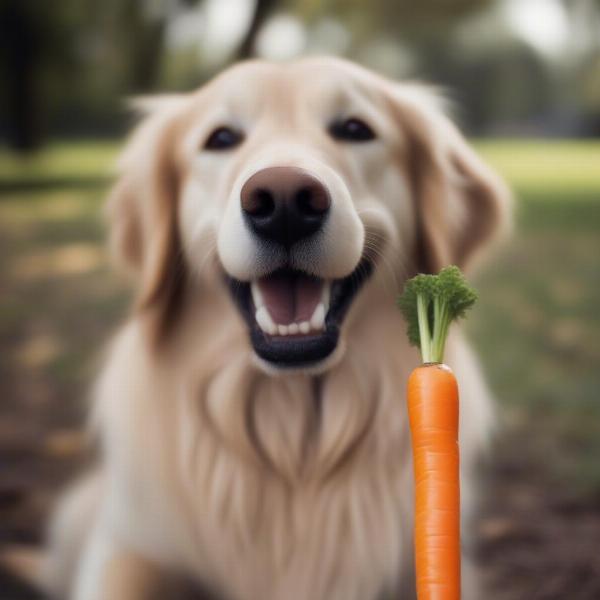Bun length hot dogs, while a delicious treat for humans, aren’t suitable for our canine companions. This article explores why feeding your dog processed meats like hot dogs is generally discouraged and offers healthier alternatives to satisfy your dog’s chewing instincts and desire for tasty treats. We’ll also discuss the importance of a balanced diet and appropriate portion sizes to keep your dog healthy and happy.
While the term “bun length hot dogs” might conjure images of a fun, barbecue-themed treat for your dog, it’s important to remember that hot dogs, and processed meats in general, aren’t ideal for canine consumption. They’re often high in sodium, fat, and contain preservatives and other additives that can be harmful to dogs. Feeding your dog a “bun length hot dog,” even occasionally, could lead to digestive upset, pancreatitis, or contribute to long-term health problems like obesity and heart disease.
Why Skip the Bun Length Hot Dog?
Hot dogs are packed with ingredients that are not beneficial for dogs. The high sodium content can lead to dehydration and exacerbate existing health conditions. Furthermore, the high fat content contributes to weight gain and can trigger pancreatitis, a painful and potentially life-threatening inflammation of the pancreas. Artificial preservatives, colors, and flavorings found in many commercially available hot dogs can also cause allergic reactions or other adverse health effects in sensitive dogs.
 Dog Enjoying Healthy Treats
Dog Enjoying Healthy Treats
Healthy Alternatives to Bun Length Hot Dogs
Instead of reaching for a bun length hot dog, consider offering your dog healthier, more nutritious treats. Chewing is a natural instinct for dogs, so providing them with safe and appropriate chew toys is essential. Durable rubber toys, nylon bones, and even frozen carrots or sweet potatoes can satisfy their urge to chew while promoting dental health.
Choosing the Right Chew Toys
When selecting chew toys for your dog, consider their size and chewing habits. A small toy could be a choking hazard for a large dog, while a toy that’s too soft might be quickly destroyed by an aggressive chewer. Opt for toys specifically designed for dogs, and always supervise your dog while they’re enjoying their chew time.
Balanced Diet is Key
Providing your dog with a complete and balanced diet is crucial for their overall health and well-being. High-quality dog food formulated for their specific life stage (puppy, adult, senior) will ensure they receive the necessary nutrients for optimal growth and development. Consult with your veterinarian to determine the appropriate type and amount of food to feed your dog based on their breed, age, activity level, and any existing health conditions.
Conclusion
While the idea of a “bun length hot dog” might seem appealing, it’s best to avoid giving your dog processed meats like hot dogs. Prioritize their health and happiness by offering them nutritious alternatives, providing safe chew toys, and ensuring they receive a balanced diet. By making informed choices, you can help your furry friend live a long, healthy, and fulfilling life.
FAQ
-
Can dogs eat hot dog buns? While small amounts of plain white bread are unlikely to be harmful, hot dog buns are often enriched with ingredients that are not good for dogs, like added sugars and fats. It’s best to avoid giving them to your dog.
-
What are some good chew treats for puppies? Puppies have developing teeth, so choose soft, pliable chew toys designed for teething.
-
What should I do if my dog eats a hot dog? Monitor your dog closely for any signs of digestive upset, such as vomiting or diarrhea. If they exhibit any concerning symptoms, contact your veterinarian immediately.
-
How can I tell if my dog is overweight? You should be able to feel your dog’s ribs easily without pressing hard. If their ribs are difficult to feel, or their waistline is not visible, they may be overweight.
-
What are some signs of pancreatitis in dogs? Symptoms of pancreatitis can include vomiting, diarrhea, loss of appetite, lethargy, abdominal pain, and fever.
-
How often should I give my dog treats? Treats should make up no more than 10% of your dog’s daily caloric intake.
Related Articles on ILM Dog
ILM Dog is your trusted source for expert advice on all aspects of dog care, from breed selection and puppy care to senior dog health and training. We provide practical, up-to-date information to help you make informed decisions and ensure your canine companion receives the best possible care. Whether you’re a new dog owner or a seasoned expert, ILM Dog offers valuable resources to support you every step of the way. Contact us at [email protected] or +44 20-3965-8624.